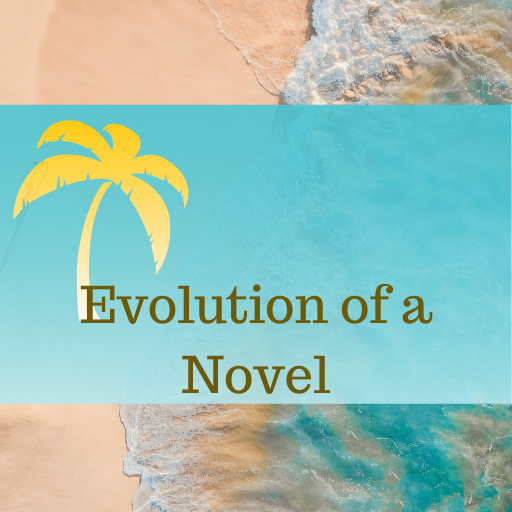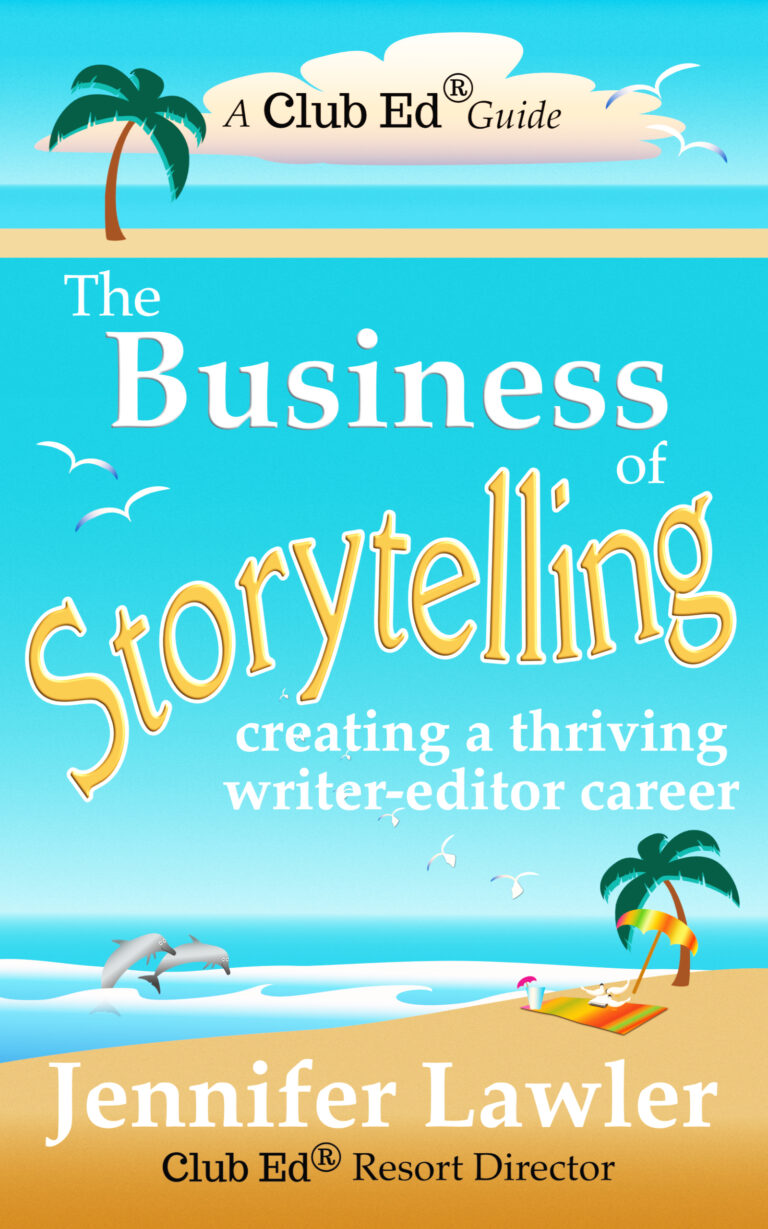How Traditional Publishing Works
Here’s a quick overview of the publishing process for authors and editors to gain a better understanding of how traditional publishing works.
Basic Information about How Traditional Publishing Works
You’re an author who is interested in publishing the traditional route—getting an agent, landing a book deal, seeing the book on the shelf in the local Barnes and Noble, the whole dream. And maybe that author has asked you to help make sure the manuscript is ready for the big show.

How Fiction and Nonfiction Are Acquired
For fiction, your author needs to have written the full manuscript (unless they’re multi-published by traditional publishers). The author will also need to have a synopsis of the work, which is a fairly in-depth description of the plot and characters. The author will need to have a query letter (also called a pitch letter), a brief summary of the story. The author sends the query letter and perhaps the syopsis and a few pages of the ms itself to potential agents (depending on each agent’s specific guidelines). If the agent is interested, they will ask for the full ms (or some part of it).
If your author is writing nonfiction, the author must write a book proposal (even if they have already written the whole book). That’s unless the nonfiction is a memoir or a similar type of creative nonfiction, which is treated more like fiction.
Then, the author will pitch the book idea to agents, either including the proposal or waiting to be asked for the proposal, depending on the agent’s guidelines. (This information can easily be found on agency websites.)
If all goes well (in either fiction or nonfiction), an agent will agree to represent the author and will sell the book to an acquisitions editor at a publishing company. Sometime thereafter, the publisher will publish the book, and then, one hopes, readers will buy it and love it.
Some publishers (very few, mostly small) allow authors to query them directly. In this case, the process is still the same: the author pitches the project as directed in the guidelines. If interested, the acquisitions editor will ask to see the proposal (for nonfiction) or the synopsis and complete ms (for fiction).
What’s an Author?
Seems obvious, right? It’s a person, generally speaking, who has written a book. But sometimes, as in the case of a celebrity or expert author, the person whose name is on the book didn’t actually write it. Someone gave him or her a hand. This coauthor (if the writer’s name appears on the book) or ghost author/ghostwriter (if the writer’s name doesn’t appear on the book) interviews the expert or celebrity, writes the book, and gets compensated for their work, either with an upfront payment or a share of the royalties (money the book earns) or both. See below for more information about advances and royalties.
People interested in writing books have several opportunities:
- They can be a book author, writing their own books under their own name (or, if writing fiction, a pen name if they want). For fiction, the author must have a solid mastery of craft. For nonfiction, it is helpful for the author to be a recognized expert in their subject area, or at least to have covered the subject extensively as a journalist. Some nonfiction writers, like Malcolm Gladwell, are successful writers even though they’re not experts in their own right. These writers do in-depth research on topics of interest to readers and present the information in a compelling and accessible way.
- Authors can be experts, using coauthors and ghosts to help them write nonfiction books in their area of expertise.
- Authors can be coauthors or ghosts, doing the actual writing based on information obtained from the expert who will be credited with the book.
- Authors can be celebrity authors. First they have to become famous in another field of endeavor. Then they decide to write books. Most choose one of the other three options.
Words to Know
Acquisitions editors represent their publishing company and are the ones who actually offer the contract for a book. The acquisitions editor may or may not actually edit the book. Many acquisitions editors will hand off manuscripts to developmental editors, who help shape the manuscript and make sure it does what it’s supposed to do. As a freelance developmental editor, you may be hired by an acquisitions editor or editor-in-chief to develop manuscripts for a traditional publishing company.
Advance: money a publisher pays an author before their book is published. In general, an editor plans to pay an advance equal to the amount of royalties—the author’s share of profits—that they believe the book will earn in six months (in some cases, one year). Since figuring out how many copies a certain title will sell requires a bit of guesswork, and agents push editors for larger advances, often a book doesn’t sell enough copies to earn out the advance. That is, an author may receive an advance but then never see additional royalties.
Traditionally, half the advance is paid upon signing the contract and half upon acceptance of the final manuscript, but these days, many publishers split the advance into thirds: one-third upon signing the contract, one-third upon acceptance of the manuscript, and one-third upon publication.
Advances vary widely, depending on the publisher, the book, and the author. They can range from zero to well into the six figures. Recently, advances have been declining because of the poor economy and slow book sales.
Note: Some self-publishing sites claim that the author has to pay back the advance if their book doesn’t sell well enough to earn out. This is untrue. The only time an author has to pay back the royalty is if they fail to meet contractual obligations, such as not delivering the book by the deadline. Even then, most editors will work with the author to establish a new deadline.
Agent. Agents work as salespeople on behalf of writers. They sell the author’s book to a publishing company and earn a commission from the advance and royalties (the standard commission is 15 percent). They protect an author’s rights and try to ensure that the author gets favorable contract terms. Generally, they don’t edit an author’s work, although some will help an author polish their work before shopping it (sending it out to editors). As a freelance development editor, you can benefit from getting to know agents, as they may refer potential clients to you if they feel you can help an author get their work ready for publication.
Assistant editors work with acquisitions editors and may or may not have decision-making clout.
Copy editors and proofreaders are usually freelancers. When on staff, they are not decision-makers and cannot offer to publish a book. But this is another route freelancers can take to get work from publishing companies.
Editorial assistants read the slush (manuscripts no one is very excited about) and make the coffee, but hope to someday run the company (and for all we know, will).
Production editors route the book through the editing and design stage and resolve problems in the production process (whether print or digital or both). The author is unlikely to have much contact with production editors; if you’re working as a freelancer for a publishing company, you may work with a production editor to schedule deadlines and workflow. Or you may work with a copy chief, who oversees the movement of the manuscript through the editorial process. These roles or some part of them may be played by a managing editor.
Editors-in-chief and executive editors oversee the entire editing function of the publishing company. They may acquire books but their main role is management.
Publisher. This term is used loosely to refer to both the person who holds the title of publisher and to the publishing company as a whole. The publisher is basically the head honcho. He or she is mostly involved in the financial end of the operation—making sure sales are good and revenue is flowing. They usually have the final say on editorial decisions, but they don’t generally acquire books.
Royalty: the amount the author receives per book sold, traditionally a percentage of the cover price of the book but now commonly a percentage of the net price of the book (what the publisher sells the book to a retailer for). For print, royalties tend to be graduated, with higher percentages for hardcover (perhaps 10 percent) and the lowest percentages for mass-market books (5 percent). Mass market books are the 5×7 paperback books you find at Walmart, the grocery store, and the bookstore. Trade paperbacks are of varying sizes; the royalty rate for these is usually somewhere between hardcover and mass market.
Ebook royalties run higher, usually somewhere in the range of 25-50 percent of the cover price. As mentioned, royalties can also be paid on net earnings rather than cover price, and it makes a big difference in how much money a royalty rate will actually generate for the author.
Four Ways Authors Find Agents
Where does an author find an agent? Especially a good one? Herewith, the four basic strategies, in no particular order:
- Through writers’ conferences, which often have pitch sessions, authors can meet with various agents and pitch their manuscripts.
- Referrals from other writers. In other words, networking and schmoozing.
- The agent finds the author. Dream on, right? But this happens much more frequently than you might realize. If an author has an online presence, it’s possible to attract the attention of an agent looking for a writer for a specific kind of book she knows editors need.
- The author sends pitch letters to agents cold. It works a lot of the time.
If you’re an author trying to find an agent, I encourage perseverance. It’s not unheard of for an author to send a hundred queries before getting a response (if they get a response at all).
Things to remember: if an author sends out 50 or 100 queries at once, this doesn’t allow for making changes to the pitch (or the project). Once an author has pitched an agent, and the agent has said no or hasn’t responded within a reasonable amount of time (not responding is how some agents say no), the author can’t query them on that same project again.
By sending out a few letters at a time (say five or ten), the author will have the opportunity to tweak their pitch if they’re not getting any bites. By the same token, if they’re getting bites but no offers of representation, that means the proposal (for nonfiction) or the manuscript (for fiction) needs more work.
Many agents blog or participate on Twitter. Spending some time reading their blog or following them on Twitter can give an author a sense of whether they’d be a good match. As a freelance dev editor, connecting with agents (and/or acquisition editors) on Twitter can help create a connection so they’ll think of you if they have an author who needs a dev editor.
Tips for Editors & Writers
Let the manuscript teach you how to edit it
One of the lessons I’ve learned over many years of editing is that you have to let the manuscript teach you how to edit it. Every manuscript is different and every manuscript needs a different touch. Even when an author does something I’ve seen many times before, I have to edit for that particular manuscript,…
Helping Authors Strengthen Story Settings
The setting of a novel consists of multiple elements, big and small, that nest inside each other like those little Russian dolls. We might show this hierarchy of settings like so: If you think about it, the micro setting of “the living room of 601 San Mateo Road Apartment 16” implies the existence of all…
Setting problems: lack of concrete locations
Writers often use setting like a painted backdrop to their stories, rather than as an integral element of their storytelling. As DEs, we can help them make the setting come to life. If we think of Wuthering Heights, we think of the Yorkshire moors. When we think of Moby Dick, it’s a whaler on the…
Join the Club!
New to story editing? Begin at the beginning.






